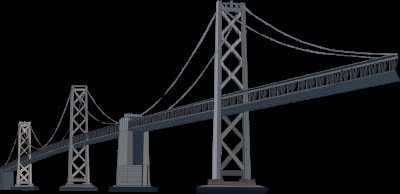bridge
US /brɪdʒ/
UK /brɪdʒ/

名词
1.
2.
鼻梁
the upper bony part of the nose
示例:
•
She wears her glasses on the bridge of her nose.
她把眼镜戴在鼻梁上。
•
He broke the bridge of his nose in the accident.
他在事故中摔断了鼻梁。
3.
桥梁, 连接
a connecting or transitional passage or link
示例:
•
The program aims to bridge the gap between theory and practice.
该项目旨在弥合理论与实践之间的鸿沟。
•
Music can act as a bridge between different cultures.
音乐可以作为不同文化之间的桥梁。
动词
1.
在 Lingoland 学习这个单词